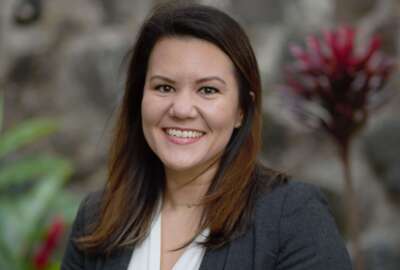The Pentagon’s Defense Innovation Unit is expanding its geographic footprint yet again. DIU opened a new office in Chicago on Thursday, its fifth location so far, hoping to connect commercial innovators in the Midwest with military requirements.
From the beginning, one of DIU’s key missions has been to make DoD’s innovation ecosystem a bit less focused on the Washington, D.C., Beltway. Besides the National Capital Region, the organization already has offices in Mountain View, California; Boston and Austin. But Mike Brown, DIU’s director, said the midwestern U.S. was still a big gap.
“If you look at what we’re typically following, it’s the venture capital trends: Where are the companies that we would go to that would provide potential solutions to the problems that we’re working on? That has shifted at a slow rate outside Silicon Valley,” he said during an event hosted by C4ISRNet earlier this week. “Silicon Valley is still quite the center of innovation activity commercially, but that has shifted to other innovation hubs, and we want to be following that trend to make sure that we’re not too rooted to one geographical area.”
The Chicago location won’t be a standalone DIU facility. Instead, the agency will share the new office with the Army’s 75th Innovation Command, the Army Research Laboratory, and a team from the Illinois National Guard. It will also host a branch office of the National Security Innovation Network, an arm of the DoD research and engineering organization that tries to pair small innovators with DoD customers.
Brown said one of the Chicago location’s initial focus areas will be on commercial energy technologies.
“With more and more of the projects we’re doing in the energy space, how do we have greener sources of energy and make sure that the force is more resilient? That’s naturally taking us outside of Silicon Valley as well, because that activity is not focused there,” he said. “If you look at where’s the center of electrifying vehicles, it’s Detroit, where we’re already working with two suppliers on electrifying larger vehicles, starting with hybrid. An Army study found that 80% of the time that when those vehicles were on, they were idling, and it wasn’t necessary to use petroleum based fuel. So that’s a huge opportunity to be able to make the force greener and extend the range of the vehicles. DoD, as the largest energy consumer in the world, has to be able to start taking advantage of that [hybrid technology], and that naturally has taken us to the Midwest.”
DIU said the new office will be responsible for outreach to commercial companies in 12 midwestern states and will be staffed by a combination of full-time employees and military reservists. Officials hosted a kickoff session with regional vendors on Thursday to explain the organization’s processes and the contract vehicles it uses to make prototype awards to companies who don’t normally do business with DoD.
For the most part, that’s done through a Commercial Solutions Opening, a DIU-pioneered process that the agency said it’s used to make awards to 263 companies since 2016. So far, 43 of those prototype awards, which use DoD’s other transaction authority, have transitioned to formal production contracts with military services and Defense agencies. About 100 of the companies hadn’t done any sort of government work before partnering with DIU.
“75% of the awards we make are to small businesses. But [we need to] reform the requirements process, allow the market to be creative and more broadly deploy what DIU is doing,” Brown said. “We need to use more of the methods that we’re using across DoD procurement. When you’re mirroring commercial processes instead of the Federal Acquisition Regulation, you go much faster and basically tailor the contract to solving that problem. We could be doing a lot more if we were better resourced.”
In the meantime, DIU is also trying to evangelize its CSO process so that it’s not the only DoD organization using it.
The objective itself isn’t exactly new. In 2016, DIU published a how-to guide for the rest of DoD on how to use commercial solutions openings. Now, as part of a partnership with Defense Acquisition University, it’s going a step further, and setting up a formal training program for the Pentagon’s acquisition community.
The year-long Immersive Commercial Acquisition Program (ICAP) will deliver in-depth training on CSOs to a half-dozen mid-to-senior level contracting officers across the department, starting this October.
“One of the things that we’ve noticed is that although the other transaction authority has been around for a while, a lot of the contracting and acquisition professionals across the DoD really don’t have a thorough understanding of how to use the authority, or how DIU utilizes the authority to really reach these nontraditional vendors,” Cherissa Tamayori, DIU’s director of acquisition said in an interview Thursday with Federal News Network. “We want our ICAP fellows to really gain hands-on experience. We think experiential learning is really needed to get those throughout the Department of Defense a thorough understanding on how to actually utilize the authority as well as the process.”
Copyright
© 2024 Federal News Network. All rights reserved. This website is not intended for users located within the European Economic Area.






